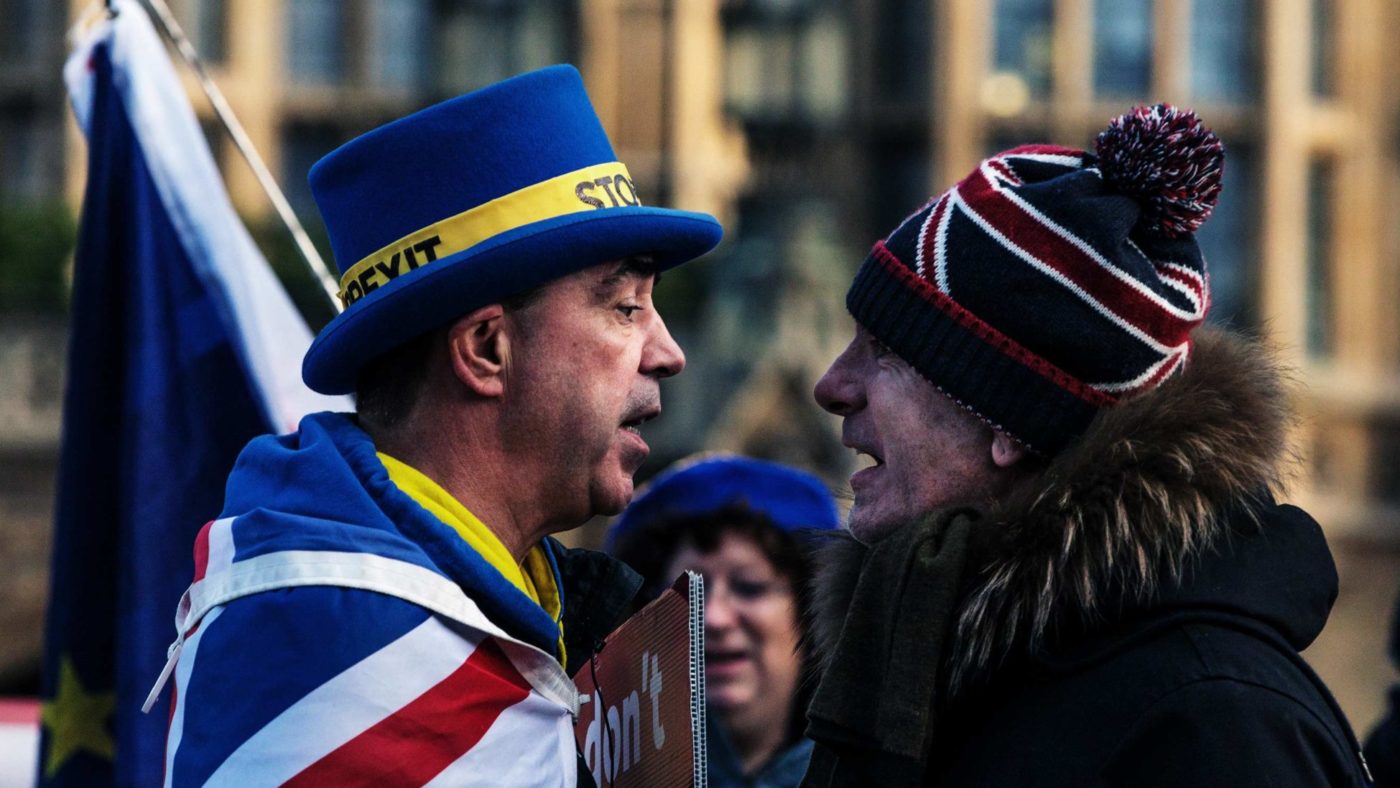Could this turn out to be Britain’s angriest election?
Last week police issued new guidance to every candidate on how to protect themselves from harassment and threats. Some have already had their offices vandalised; others have even received death threats. Female MPs and those of an ethnic or faith minority background have experienced more frequent and nastier abuse. Our wider political debate has also become more heated – with increasing exasperation on both sides with the Brexit process.
Elections are inherently oppositional, asking voters to pick a side. There is even a legitimate role for anger in politics – at the government or at the position of its rivals. But there must be some point at which we draw a line.
When it goes too far, the leaflet jointly issued by the National Police Chiefs’ Council (NPCC), the Crown Prosecution Service, College of Policing and the Electoral Commission, offers practical advice to candidates on personal safety. It follows warnings to candidates not to campaign alone or in the dark – which many may be tempted to ignore during a winter election campaign. “Strong and varied views are the mark of a healthy democracy,” said National Police Chiefs’ Council Chair Martin Hewitt, launching the new guidance, “but these should not cross the line into criminal abuse, harassment or disorder.”
The language of treachery and ‘enemies of the people’ has resurfaced in the political lexicon, not in green-penned letters but on newspaper front pages. A recent study by Kings College Policy Institute found strong evidence of what it calls ‘affective polarisation’ among the electorate – where “people on both sides of the Brexit vote dislike the opposing side intensely even though they don’t necessarily disagree with their positions on salient issues”.
The two main parties are as distant in terms of policy and ideology as they have been since the 1980s, leading both sides to see the other not just as opponents, but as fundamental threat to the country’s future. Neither is pursuing an electoral strategy that focuses on bridging to the centre, preferring instead to double-down and mobilise their core support. Social media means every story and debate is played out at high speed, with prominence given to the loudest and more polarised voices.
It’s important to our democracy not to shut down debate. But there are roles for actors at all levels to maintain our accepted norms of behaviour and help prevent an impassioned argument turning into a fight.
Politicians do need to think carefully about the language that they use. There is a boundary between legitimate criticism of opponents and inciting supporters to view them as an enemy, which could be seen to legitimise violence. And predictions of violent consequences from policy decisions – whether that is the return of nationalist and loyalist terrorism over the Irish border question, or warnings of ‘rioting in the streets’ if the referendum decision is not enacted – can overstep the line between a prediction and a threat.
Political parties can also do more to keep their own houses in order. Neither of the main parties has done enough to answer criticisms of prejudice within their own ranks, whether anti-Semitism on the left or Islamophobia on the right. Instead the response has tended to be dodging the question and pointing to the offences of the other side. Braver souls who have confronted issues within their own parties have received abuse online – with the language of treachery again being misused.
Civil society and the media can both play the role of neutral arbiters. Obviously newspapers tend to back their own team during an election campaign, but that makes it all the more powerful when they acknowledge that their own side has overstepped the mark.
A public event at Kings College London this week will see voices from media, civil society and academia discuss whether this election campaign risks undermining basic norms of political debate – and we can do to stop things from boiling over. Another question it will look at is whether the risks are being exaggerated. Elections are always a time of more heated debate and this one may turn out to be little different – with the debate then shifting to how we move on afterwards.
This election could increase polarisation in our politics. A number of experienced MPs have stepped down and decided to leave public office and on both sides of the House of Commons they have tended to be those of what one might call a more moderate bent. That could result in a further hollowing-out of the centre ground, with more distance between the rival camps.
Yet for all these concerns, this election could also be cathartic – demonstrating that even at a time of heightened polarisation, we can still hold a peaceful democratic process to determine the country’s future direction. One hopes that will turn out to be the case – and that MPs in the new Parliament will have had little cause to refer to the NPCC’s safety guidance.
Click here to subscribe to our daily briefing – the best pieces from CapX and across the web.
CapX depends on the generosity of its readers. If you value what we do, please consider making a donation.


